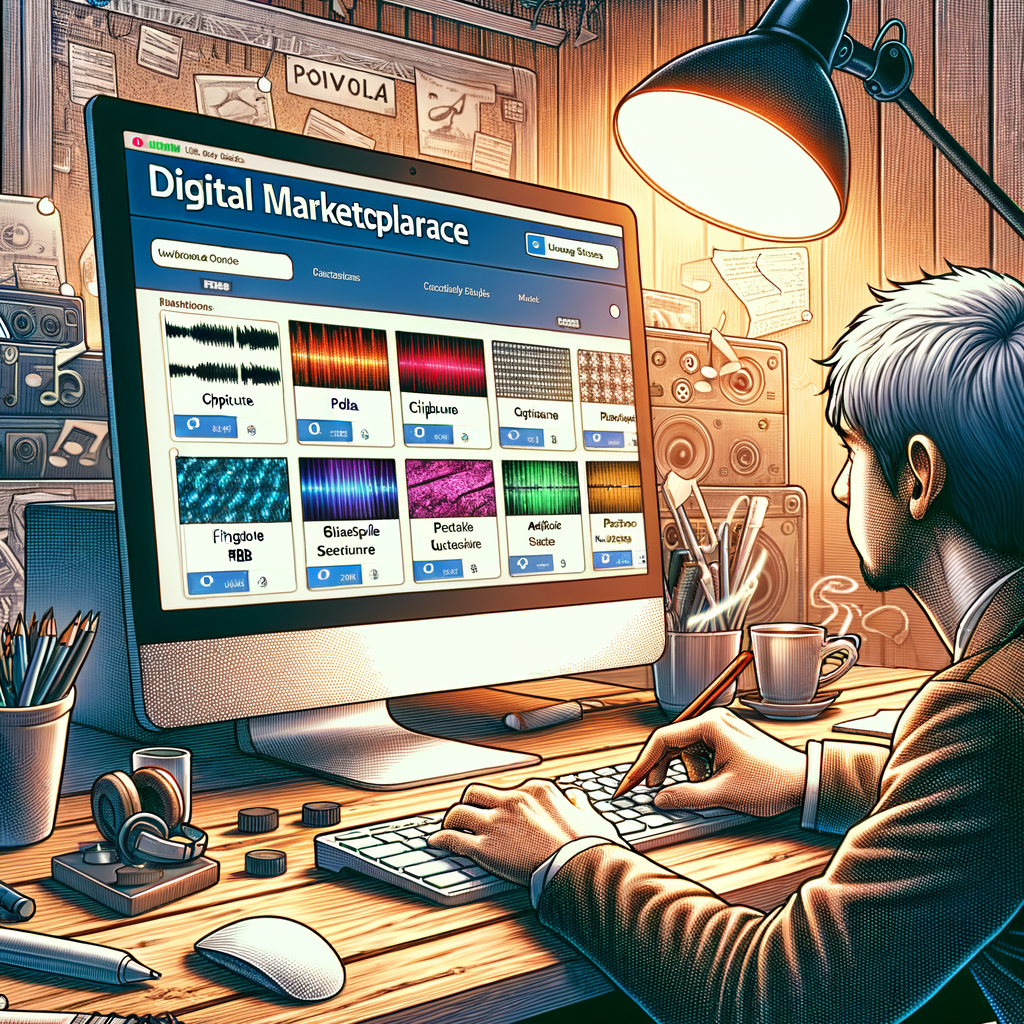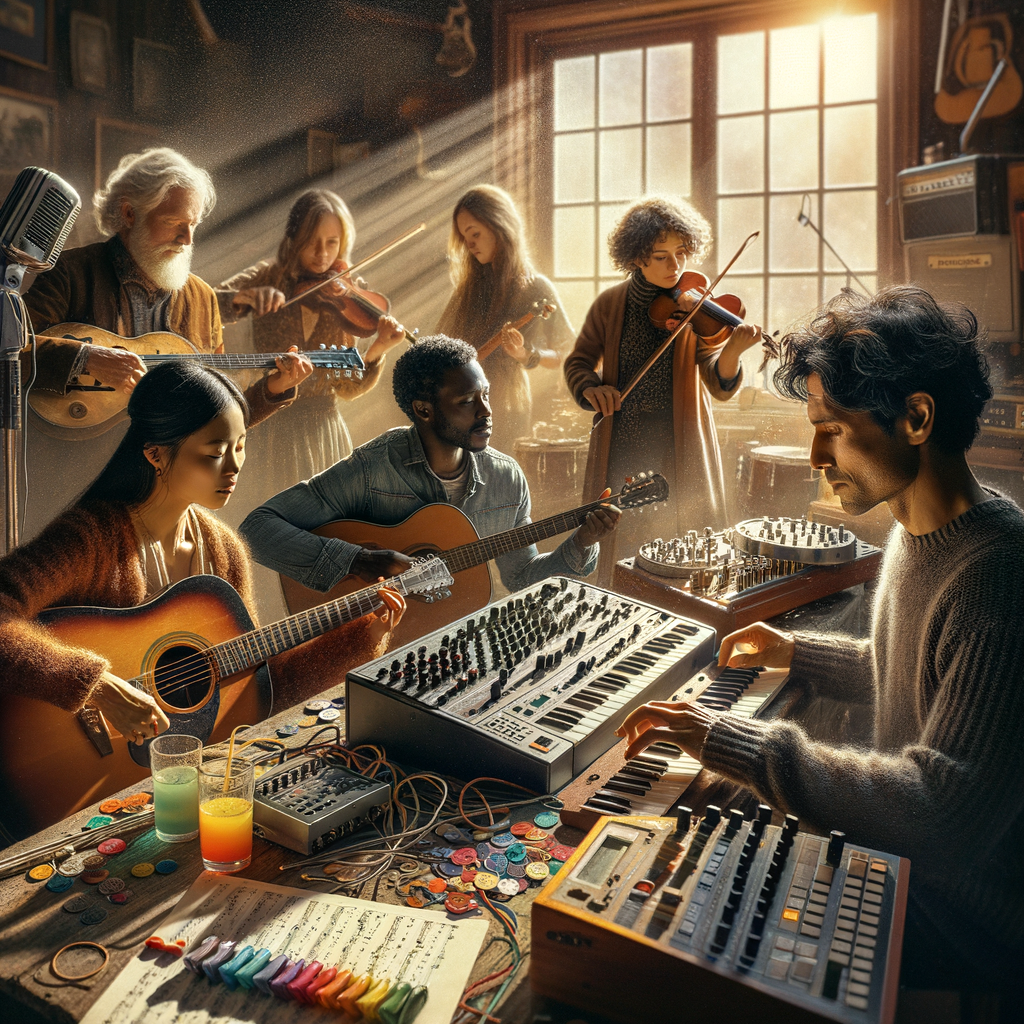How Niche Music Service Marketplaces Are Reshaping Genre-Specific Careers for Independent Artists
Discover how specialized music marketplaces are enabling independent artists to thrive in niche genres, changing their career paths in 2025.
How Niche Music Service Marketplaces Are Reshaping Genre-Specific Careers for Independent Artists
As an independent artist, I’ve witnessed a seismic shift in the way niche genres are represented and monetized in the digital age. Up until recently, breaking through as a polka, chiptune, Klezmer, or fingerstyle R&B artist felt nearly impossible without either a massive social following or luck breaking the viral barrier. But as we move into 2025, niche music service marketplaces have become powerful engines of change, enabling artists like me to thrive outside mainstream boundaries. These platforms provide a lifeline to audiences and industry professionals who genuinely appreciate the specificity of our craft, transforming what was once a passion project into a viable career path.
The explosion of online music marketplaces over the last decade made global distribution accessible to all. However, these massive, catch-all platforms left many artists fighting for attention amid a sea of unrelated content. The rise of genre-specific and niche-oriented music service marketplaces has turned the tide. By honing in on tight-knit communities—think boutique sync licensing, beat marketplaces tailored exclusively for lofi producers, and streaming hubs focused on neo-soul or avant-garde jazz—these platforms nurture their own ecosystems. Instead of casting a wide net with little return, I can now target my music to listeners, curators, and collaborators already predisposed to love my sound.
One major impact of this shift is the way it enables authentic discovery and connection. Specialized marketplaces use curated playlists, genre-focused charts, and advanced tagging to help fans unearth truly unique sounds. For example, I’ve watched peers in microgenres like vaporwave or folktronica amass loyal followings through community-driven platforms that celebrate new releases, dissect techniques, and connect musicians directly to listeners—all while skipping the endless noise of mainstream portals. Genre-specific algorithm recommendations far outstrip generic “you might also like” systems in terms of steering authentic fans toward our music.
Being active on these platforms does more than boost visibility. Monetization avenues have evolved as well. In the past, most revenue for indie musicians came from live shows or pittance payouts from mass streaming. Now, niche marketplaces empower artists to package sample packs, offer custom arrangement services, license stems for other creators, and sell direct-to-fan merchandise—all tailored to the micro-economies within their genres. Platforms like BeatStars (for producers) and Tracklib (for sample licensing), for instance, let artists provide exactly what their specific audiences want, at transparent and fair terms.

What’s more, genre-specific music service marketplaces foster networking and collaboration. Unlike generic platforms, where DMs get lost and opportunities feel impersonal, these niche communities serve as both a market and a meeting place. I’ve landed collaborations with international producers, licensing deals for indie games, and sync placements in hyper-targeted ad campaigns—all mediated by these marketplaces, which are staffed by people who actually understand my genre. This direct access to decision-makers and peers within my niche accelerates career growth in a way major platforms can’t replicate.

Challenges remain, of course. Financial sustainability in a narrow market can still be a hurdle, as can the temptation to dilute one’s sound in hopes of grabbing more eyeballs. But the data speaks for itself: artists who cultivate a loyal, genre-specific following on specialized marketplaces enjoy higher engagement, better sales conversion rates, and more meaningful career momentum than those lost in the digital masses. In 2025 and beyond, I see niche music service marketplaces as the catalysts enabling independent artists like me to build lasting, genre-defining careers—from the underground out.
Conclusion
Specialized music service marketplaces are empowering independent artists to forge successful careers in niche genres through authentic discovery, tailored monetization, and vibrant community engagement. By escaping the pitfalls of generic platforms, creators can connect directly with their audiences, monetizing passion projects and redefining what’s possible for niche music careers in the digital age.
Blog Article Tags
music marketplace independent artists niche music music careers digital distribution genre-specific artist monetization music sync licensing music community direct-to-fan salesMore Articles
Maximizing Your Reach: Effective Social Media Strategies for Indie Creators - Discover actionable social media strategies for indie creators to engage fans, grow your audience, and increase support across disciplines.
Unlocking Hidden Insights: How Freelance Analytics Reporters Turn Data into Stories - Discover how freelance analytics reporters transform raw data into compelling stories that empower smarter decisions and fuel business growth.
Hidden Gems: Unconventional Affiliate Marketing Freelancer Jobs That Pay Big - Discover little-known, high-paying affiliate marketing freelance gigs that can expand your income streams and boost your freelancing portfolio beyond the typical roles.
Beyond Fiverr: Hidden Gems for Music Promotion in 2025 - Uncover innovative, lesser-known platforms and tactics independent artists use in 2025 to promote their music beyond Fiverr.
Discovering Hidden Gems: Untapped Platforms Playlist Curators Prefer Over Fiverr - Explore new, alternative platforms that playlist curators are flocking to in 2025, featuring community perks, unique tools, and collaborative advantages far beyond Fiverr.


